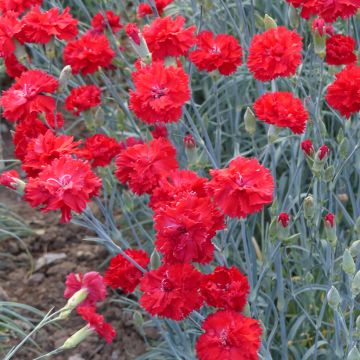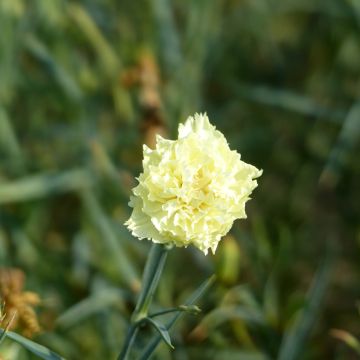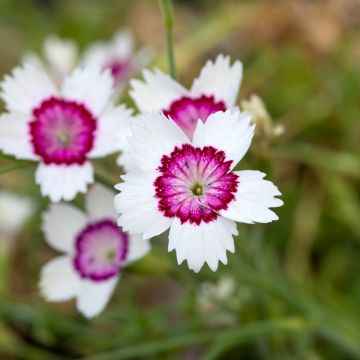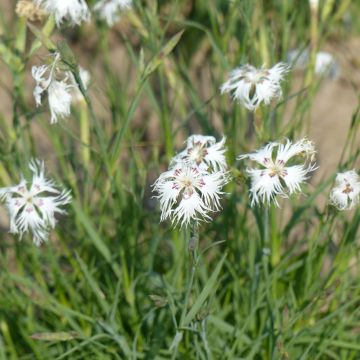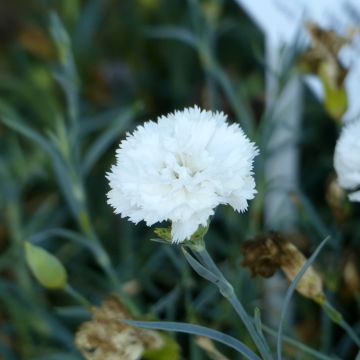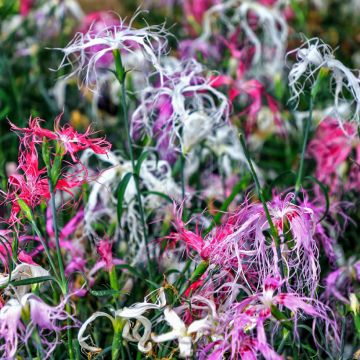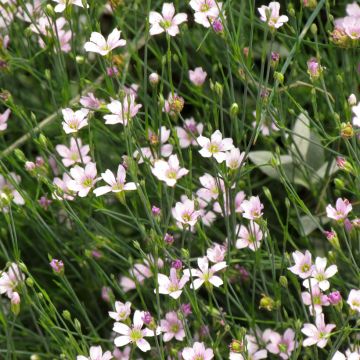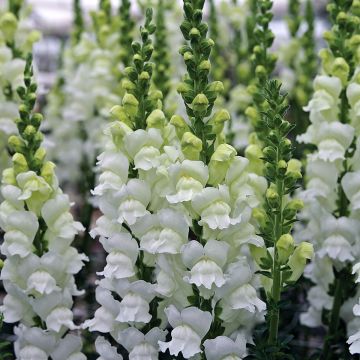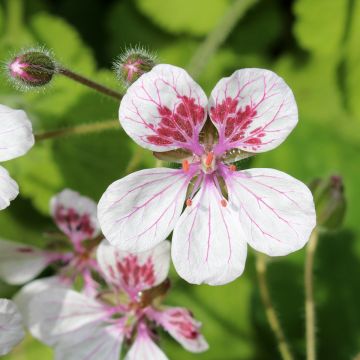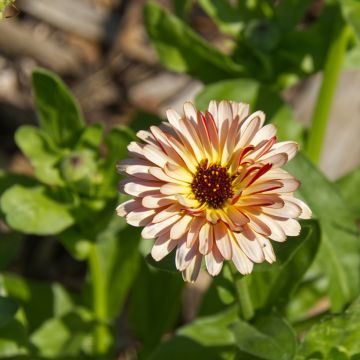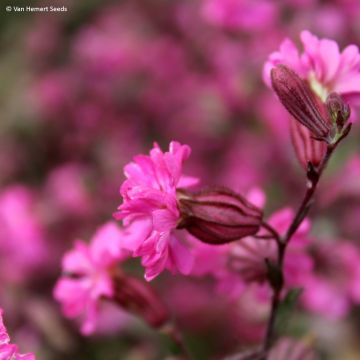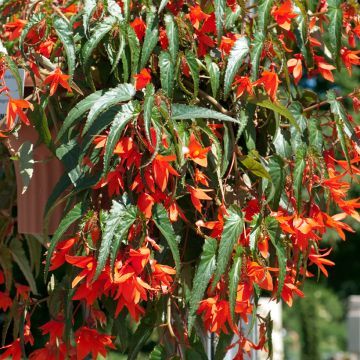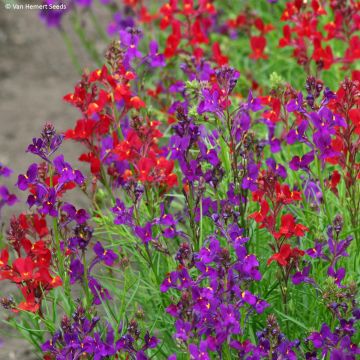

Graines d'Oeillet de poète T&M Auricula Eyed mixed - Dianthus barbatus


Sweet William Auricula Eyed Mixed Seeds - Dianthus barbatus
Sweet William Auricula Eyed Mixed Seeds - Dianthus barbatus
Dianthus barbatus T&M Auricula Eyed mixed
Sweet William
Special offer!
Receive a €20 voucher for any order over €90 (excluding delivery costs, credit notes, and plastic-free options)!
1- Add your favorite plants to your cart.
2- Once you have reached €90, confirm your order (you can even choose the delivery date!).
3- As soon as your order is shipped, you will receive an email containing your voucher code, valid for 3 months (90 days).
Your voucher is unique and can only be used once, for any order with a minimum value of €20, excluding delivery costs.
Can be combined with other current offers, non-divisible and non-refundable.
Home or relay delivery (depending on size and destination)
Schedule delivery date,
and select date in basket
This plant carries a 6 months recovery warranty
More information
We guarantee the quality of our plants for a full growing cycle, and will replace at our expense any plant that fails to recover under normal climatic and planting conditions.
Would this plant suit my garden?
Set up your Plantfit profile →
Description
Sweet William 'Auricula Eyed Mix' is a collection of compact, well-branched varieties with two-toned blooms featuring a distinct contrasting eye. Depending on the plant, colours range from very pale pink to deep pinkish-purple. This popular biennial brings a romantic touch to spring borders and beds. The sweetly scented flowers are ideal for cutting and look beautiful in any setting. Suitable for growing in pots and easy to grow in cool, rich, well-drained soil in full sun or part shade.
Dianthus barbatus is a biennial plant that belongs to the Caryophyllaceae family. It occurs naturally in temperate regions of Europe and Asia. This cold-hardy plant generally flowers in its second year after sowing. 'Auricula Eyed Mix' is a collection of varieties selected by Thompson & Morgan. Plants form a very dense basal clump of long leaves with pointed tips, light green to bluish green in colour. They vary in size from 45 to 60 cm tall in full bloom. Flowering takes place in May-June. The small flowers are gathered in flattened clusters, from 8 to 15 cm in diameter, carried at the end of thin yet sturdy, well-branched stems. They display various shades of pink, often featuring two tones and an attractive eye. Sweet William flowers have a gorgeous spicy and sweet scent, with notes of cloves and cinnamon.
Sweet William is an easy plant to grow, that is very low maintenance once established. Like bellflowers and columbines, it effortlessly fits into any garden. Grow along passageways such as garden paths or near an entrance to fully enjoy its sweetly scented blooms! In flower beds and borders, grow en masse to create beautiful drifts of colour. Dianthus barbatus is suitable for container gardens, in pots on the patio or balcony. Make sure to provide the plants with perfect drainage and a little fertilizer.
Report an error about the product description
Flowering
Foliage
Plant habit
Botanical data
Dianthus
barbatus
T&M Auricula Eyed mixed
Caryophyllaceae
Sweet William
Cultivar or hybrid
Other Dianthus seeds
View all →Planting and care
Sow the seeds of annual pink in pots or under a greenhouse, from January to February, as a late-flowering annual, or in May-June in trays and containers to see them bloom in May-June the following year.
Sow on the surface of good quality and well-drained compost. Place the seed tray in a mini-greenhouse at a temperature of 15-20°C, or in a transparent plastic bag until germination, which takes 7-21 days. The May-June sowings can stay outside, but will be protected from frost in winter in a cold greenhouse. Keep the compost moist but not waterlogged and do not exclude light, which aids germination.
When the seedlings are large enough to handle, transplant them into 8 cm (3.1 in) pots and let the plants grow in cooler conditions. When all risk of frost has passed, gradually acclimatize them to outdoor conditions for 7-10 days before transplanting them outside. Maintain a distance of 30cm (11.8 in) between plants, and plant them in any fertile, well-drained soil that is not too dry, in full sun.
Sowing period
Intended location
This item has not been reviewed yet - be the first to leave a review about it.
Similar products
Haven't found what you were looking for?
Hardiness is the lowest winter temperature a plant can endure without suffering serious damage or even dying. However, hardiness is affected by location (a sheltered area, such as a patio), protection (winter cover) and soil type (hardiness is improved by well-drained soil).

Photo Sharing Terms & Conditions
In order to encourage gardeners to interact and share their experiences, Promesse de fleurs offers various media enabling content to be uploaded onto its Site - in particular via the ‘Photo sharing’ module.
The User agrees to refrain from:
- Posting any content that is illegal, prejudicial, insulting, racist, inciteful to hatred, revisionist, contrary to public decency, that infringes on privacy or on the privacy rights of third parties, in particular the publicity rights of persons and goods, intellectual property rights, or the right to privacy.
- Submitting content on behalf of a third party;
- Impersonate the identity of a third party and/or publish any personal information about a third party;
In general, the User undertakes to refrain from any unethical behaviour.
All Content (in particular text, comments, files, images, photos, videos, creative works, etc.), which may be subject to property or intellectual property rights, image or other private rights, shall remain the property of the User, subject to the limited rights granted by the terms of the licence granted by Promesse de fleurs as stated below. Users are at liberty to publish or not to publish such Content on the Site, notably via the ‘Photo Sharing’ facility, and accept that this Content shall be made public and freely accessible, notably on the Internet.
Users further acknowledge, undertake to have ,and guarantee that they hold all necessary rights and permissions to publish such material on the Site, in particular with regard to the legislation in force pertaining to any privacy, property, intellectual property, image, or contractual rights, or rights of any other nature. By publishing such Content on the Site, Users acknowledge accepting full liability as publishers of the Content within the meaning of the law, and grant Promesse de fleurs, free of charge, an inclusive, worldwide licence for the said Content for the entire duration of its publication, including all reproduction, representation, up/downloading, displaying, performing, transmission, and storage rights.
Users also grant permission for their name to be linked to the Content and accept that this link may not always be made available.
By engaging in posting material, Users consent to their Content becoming automatically accessible on the Internet, in particular on other sites and/or blogs and/or web pages of the Promesse de fleurs site, including in particular social pages and the Promesse de fleurs catalogue.
Users may secure the removal of entrusted content free of charge by issuing a simple request via our contact form.
The flowering period indicated on our website applies to countries and regions located in USDA zone 8 (France, the United Kingdom, Ireland, the Netherlands, etc.)
It will vary according to where you live:
- In zones 9 to 10 (Italy, Spain, Greece, etc.), flowering will occur about 2 to 4 weeks earlier.
- In zones 6 to 7 (Germany, Poland, Slovenia, and lower mountainous regions), flowering will be delayed by 2 to 3 weeks.
- In zone 5 (Central Europe, Scandinavia), blooming will be delayed by 3 to 5 weeks.
In temperate climates, pruning of spring-flowering shrubs (forsythia, spireas, etc.) should be done just after flowering.
Pruning of summer-flowering shrubs (Indian Lilac, Perovskia, etc.) can be done in winter or spring.
In cold regions as well as with frost-sensitive plants, avoid pruning too early when severe frosts may still occur.
The planting period indicated on our website applies to countries and regions located in USDA zone 8 (France, United Kingdom, Ireland, Netherlands).
It will vary according to where you live:
- In Mediterranean zones (Marseille, Madrid, Milan, etc.), autumn and winter are the best planting periods.
- In continental zones (Strasbourg, Munich, Vienna, etc.), delay planting by 2 to 3 weeks in spring and bring it forward by 2 to 4 weeks in autumn.
- In mountainous regions (the Alps, Pyrenees, Carpathians, etc.), it is best to plant in late spring (May-June) or late summer (August-September).
The harvesting period indicated on our website applies to countries and regions in USDA zone 8 (France, England, Ireland, the Netherlands).
In colder areas (Scandinavia, Poland, Austria...) fruit and vegetable harvests are likely to be delayed by 3-4 weeks.
In warmer areas (Italy, Spain, Greece, etc.), harvesting will probably take place earlier, depending on weather conditions.
The sowing periods indicated on our website apply to countries and regions within USDA Zone 8 (France, UK, Ireland, Netherlands).
In colder areas (Scandinavia, Poland, Austria...), delay any outdoor sowing by 3-4 weeks, or sow under glass.
In warmer climes (Italy, Spain, Greece, etc.), bring outdoor sowing forward by a few weeks.






























